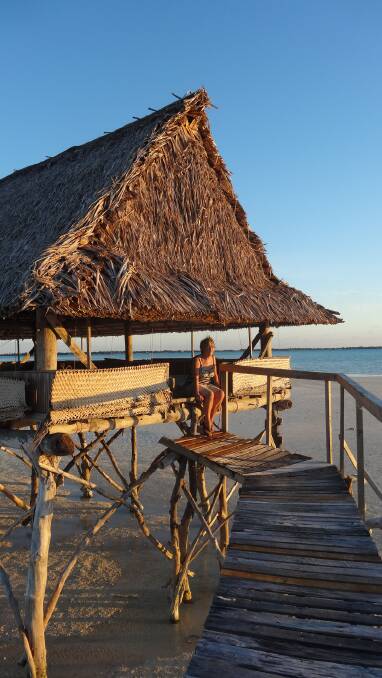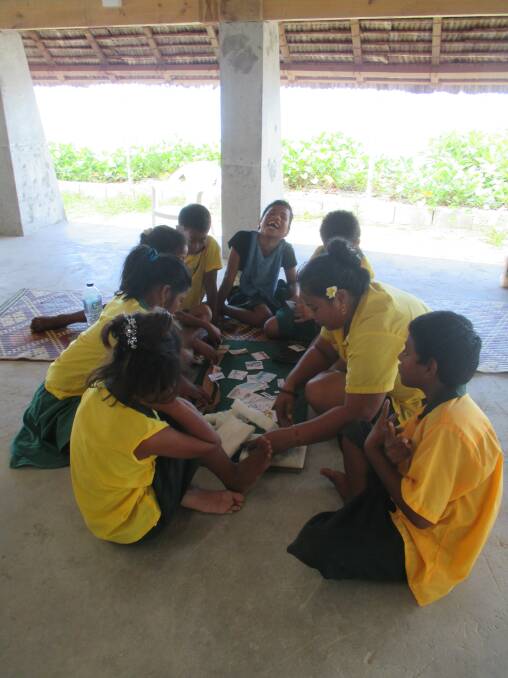
A TROPICAL adventure for Erica Smith was not all sunbathing and cocktails, with the educator leaving a lasting legacy for the children of an island paradise.
Subscribe now for unlimited access.
$0/
(min cost $0)
or signup to continue reading
Ms Smith has just returned from the small Pacific nation of Kiribati where she has volunteered for the past 18 months to train teachers and develop the curriculum for the country’s only school for children with disabilities.
“It is mainly funded by Australian aid. It has about 160 students and 30 teaching and ancillary staff. Only three of the staff have any training as teachers,” she said.
Ms Smith’s first role was to give teachers practical classroom skills, then develop a curriculum that would gain the school accreditation so it could receive government funding.
Kiribati does not support integration for students with special needs and Ms Smith said its approach to people with a disability was often confronting.
However, with support from teachers, Ms Smith developed a curriculum based on those found in Australian special schools, while still having a Kiribati flavour.

“This is a win for the school and a win for people and children with a disability to be acknowledged that they have a right to education as other abled Kiribati children and children throughout the world,” she said.
“Without the school all working together, without the improvements in teaching skills, resources and without the school curriculum this would not have been possible.”
The Warrnambool resident volunteered her skills as part of Australian Volunteers International. What makes her efforts even more remarkable is that she has significant hearing loss.
Ms Smith has a Lion hearing assistance dog to help her live safely at home, but was unable to bring her on the island adventure.
“They were very understanding of my hearing loss and language differences, so usually went out of their way to ensure I was told of events and information,” she said of the locals.
“Trying to have a conversation about power, services or health with me with a hearing loss and others with little English could be quite funny. Lucky things happen slowly in Kiribati or not at all, so any consequences of misunderstanding usually didn’t matter.”
Ms Smith said arriving on the island was something of a culture shock and opened her eyes to the struggles faced by the tiny nation.
“Kiribati is the poorest country in the Pacific having only their fishing licenses to sell and no other natural resources. They rely on foreign aid and expertise for most basic services,” she said.
“Tarawa, the capital where the majority of people live, is a coral atoll and only two metres at its highest. Many health and infrastructure problems in Kiribati are exacerbated by rising sea levels, which inundate housing, infrastructure and well water. This can be attributed not through their actions but global climate change. It can be said that our use of carbon and our lifestyle is sinking theirs.”
Ms Smith described the living conditions as basic, very few houses had hot water and cooking was done on fires or using kerosene.
“But the attitude toward life in Tarawa is so much more positive despite harsh living conditions,” she said.
In her first overseas volunteering work, Ms Smith said she had memories to last a lifetime.
“I was looking for a chance to use my experience and skills in a way that could assist people who had very little,” she said of her reasons for getting involved.
“I consider Australia as a whole very privileged that we have so much wealth and access to education and health. I feel that we should be helping other people also improve the basic conditions in which they live.”

